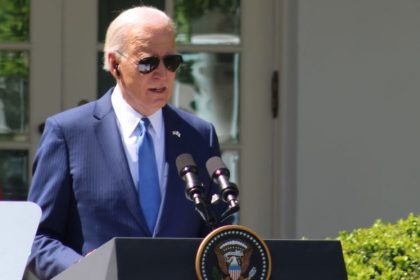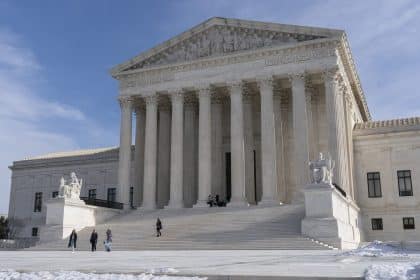Biden’s Student Loan Rules Revised While States Sue to Stop the Debt Relief

WASHINGTON — The Biden administration changed its rules on who qualifies for student loan forgiveness Thursday as seven states filed lawsuits to block the plan that would wipe away $10,000 of debt for most borrowers.
The states said in their lawsuit the Biden administration’s student debt forgiveness plan favors the wealthy but overlooks the needs of the poor at taxpayers’ expense.
Republicans are saying the plan is inflationary at a time the economy cannot endure more burdens.
The Congressional Budget Office reported this week that Biden’s debt cancellation plan would cost the government $400 billion. Student debt for federal loans in the United States totals about $1.6 trillion.
The cost of living has risen 6.2% this year through August, according to Commerce Department figures released Friday. The Federal Reserve Bank tries to keep inflation to no more than 2% per year.
The lawsuit filed in federal court in Missouri seeks a court order to halt the Biden plan, arguing the president was acting beyond his authority.
“In addition to being economically unwise and downright unfair, the Biden administration’s mass debt cancellation is yet another example in a long line of unlawful regulatory actions,” the lawsuit says. “No statute permits President Biden to unilaterally relieve millions of individuals from their obligation to pay loans they voluntarily assumed.”
Attorneys general from Arkansas, Iowa, Kansas, Missouri, Nebraska and South Carolina joined in the lawsuit filed Thursday. Arizona filed a separate lawsuit later in the day.
About the same time as the lawsuit was filed, the Education Department announced on its website that it was revising its directive on who qualifies for the debt forgiveness. The new guidance excludes borrowers with federal student loans that were granted by private lenders.
Biden said when he announced the plan last month that individuals making less than $125,000 a year and married couples with annual incomes under $250,000 could qualify for the loan forgiveness.
About 43 million Americans could get at least part of their student debt eliminated. Roughly 20 million would have their debt completely erased, according to the Biden administration.
Biden invoked authority for the plan under the 2003 Higher Education Relief Opportunities for Students Act, which authorized the secretary of Education to grant waivers on loans received under student financial aid programs.
Congress intended it as another response to the Sept. 11, 2001, attacks and the war on terrorism. It allowed the Education Department to waive debt “in connection with a war or other military operation or national emergency.”
The national emergency for Biden’s plan was the COVID-19 pandemic and the economic chaos that continues.
Department of Education General Counsel Lisa Brown concluded in a letter released last month that the HEROES Act conveyed authority for the president to “effectuate a program of categorical debt cancellation directed at addressing the financial harms caused by the COVID-19 pandemic.”
The state attorneys general disagreed. They said Biden’s policy exceeds any HEROES Act authority by extending the definition of “national emergency” too far.
“It makes no difference to the administration’s cancellation whether the pandemic rendered a borrower better or worse off or how much financial harm the borrower suffered in relation to her loans,” the lawsuit says. “Thus, the mass debt cancellation is not remotely tailored to address the effects of the pandemic on federal student loan borrowers, as required by the HEROES Act.”
It also claims the Biden administration is violating the Administrative Procedure Act and the Constitution’s requirement of separation of powers.
The Education Department addressed some of the predominantly Republican states’ complaints when it announced Federal Family Education Loan borrowers could no longer consolidate their loans and qualify for debt relief. FFEL loans are managed by private banks but guaranteed by the federal government.
The Education Department’s website announcement said, “As of Sept. 29, 2022, borrowers with federal student loans not held by ED cannot obtain one-time debt relief by consolidating those loans into Direct Loans.”
More than 4 million borrowers are indebted under FFEL loans. About 770,000 would be disqualified for debt relief under the policy change, according to the Education Department.
The lawsuit is filed as State of Nebraska et al. v. Biden et al. in the U.S. District Court for the Eastern District of Missouri.
Tom can be reached at [email protected] and @TomRamstack
























